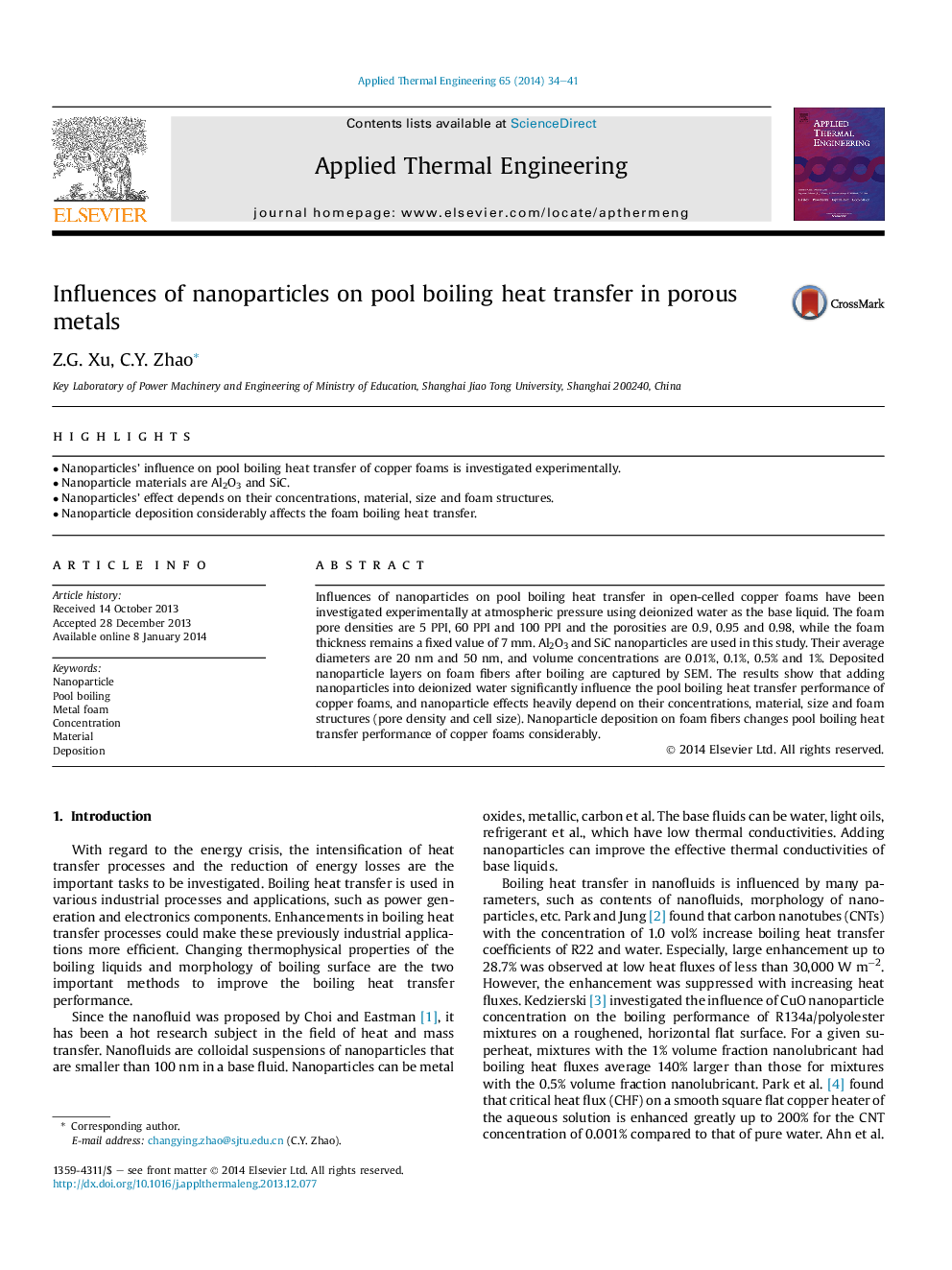| Article ID | Journal | Published Year | Pages | File Type |
|---|---|---|---|---|
| 7049171 | Applied Thermal Engineering | 2014 | 8 Pages |
Abstract
Influences of nanoparticles on pool boiling heat transfer in open-celled copper foams have been investigated experimentally at atmospheric pressure using deionized water as the base liquid. The foam pore densities are 5 PPI, 60 PPI and 100 PPI and the porosities are 0.9, 0.95 and 0.98, while the foam thickness remains a fixed value of 7Â mm. Al2O3 and SiC nanoparticles are used in this study. Their average diameters are 20Â nm and 50Â nm, and volume concentrations are 0.01%, 0.1%, 0.5% and 1%. Deposited nanoparticle layers on foam fibers after boiling are captured by SEM. The results show that adding nanoparticles into deionized water significantly influence the pool boiling heat transfer performance of copper foams, and nanoparticle effects heavily depend on their concentrations, material, size and foam structures (pore density and cell size). Nanoparticle deposition on foam fibers changes pool boiling heat transfer performance of copper foams considerably.
Related Topics
Physical Sciences and Engineering
Chemical Engineering
Fluid Flow and Transfer Processes
Authors
Z.G. Xu, C.Y. Zhao,
